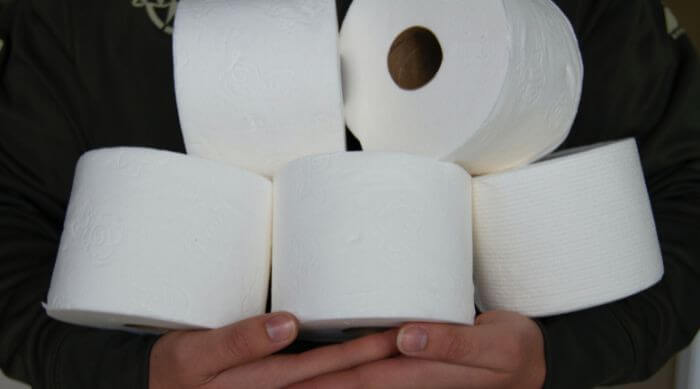Most of us have experienced some next-day bathroom time after a night out. While the topic may be a little uncomfortable, understanding the causes of diarrhea after drinking — and how to mitigate it — can help make your next social gathering more enjoyable.
Let's navigate this digestive dilemma and find ways to keep your stomach happy.
Table of Contents
How Drinking Alcohol Affects Digestion
Risk Factors for Alcohol-Related Diarrhea
Do all types of alcohol cause stomach problems?
How do you heal your stomach after drinking?
How Drinking Alcohol Affects Digestion
Drinking alcohol can have a significant impact on your digestive system, leading to side effects like diarrhea.
Upon consumption, alcohol directly affects the gastrointestinal tract, starting from the mouth and going down to the large intestine. Alcohol can increase stomach acid production, leading to irritation and inflammation of the stomach lining.
This condition, also known as gastritis, can cause discomfort, bloating, and in some cases, diarrhea.
But the stomach isn't the only area affected. The small intestine, responsible for most nutrient absorption, also suffers alcohol's effects. Alcohol can impair the absorptive functions of the small intestine, contributing to malnutrition and diarrheal symptoms. Excessive drinking habits are a strong risk factor for developing SIBO (small intestinal bacterial overgrowth).
Alcohol can disrupt the balance of bacteria in your gut, known as the gut microbiota. This imbalance, or dysbiosis, can impair gut barrier function and contribute to inflammation and diarrhea.
Significant alcohol consumption also affects the large intestine. Alcohol can increase motility in the colon, meaning it speeds up the movement of bowel contents. This accelerated transit doesn't allow the colon enough time to absorb water, leading to loose, watery stools, otherwise known as diarrhea.
Moreover, alcohol acts as a diuretic, promoting fluid loss and potentially contributing to dehydration. This can further exacerbate diarrhea.
Risk Factors for Alcohol-Related Diarrhea
While anyone consuming alcohol can experience diarrhea, certain risk factors make some people more susceptible to alcohol-induced diarrhea. Firstly, quantity and frequency matter. Large amounts of alcohol or binge drinking significantly increase the likelihood of digestive troubles.
Secondly, preexisting health conditions can play a part. Those with gastrointestinal issues may find their symptoms exacerbated by alcohol consumption. These conditions may include:
- Irritable bowel syndrome (IBS)
- Inflammatory bowel disease
- Crohn’s disease
- Celiac disease
- Food intolerances
Age can also influence the body's reaction to alcohol. As we age, our bodies may become less efficient at processing alcohol, making older adults more susceptible to its effects.
Lastly, drinking on an empty stomach can intensify alcohol's impact on your digestive tract, leading a higher likelihood you’ll have diarrhea the next day. Pairing alcohol with digestible foods may offset this risk.
Do all types of alcohol cause stomach problems?
Not all alcoholic drinks are created equal when it comes to their impact on your digestive system. Generally, the higher the alcohol content, the greater its potential to disrupt digestion.
Liquors and spirits with high alcohol content, such as whiskey or vodka, are more likely to irritate the lining of your stomach and speed up gut motility, potentially leading to diarrhea.
If your wine is giving you tummy troubles, it may be time to look for a lower ABV option or try one of Surely’s non-alcoholic varietals.
However, it's not just the alcohol itself that can cause problems. The mixers used in cocktails, such as juices or soda, can be high in sugar, which can also contribute to digestive issues. Apple juice, in particular, can cause diarrhea in some people (particularly when added to a cocktail).
Drinks high in gluten, like some beers, may cause trouble for those with gluten sensitivities or celiac disease.
Any alcoholic beverage can potentially cause stomach problems, but the extent can vary based on alcohol content, mixers, and individual tolerances or sensitivities.
How do you heal your stomach after drinking?
There are a few things you can do to heal your stomach after drinking, including hydrating, eating the right foods (and avoiding the wrong ones), and trying over-the-counter medications.
Hydrate
It's important to replenish lost fluids and electrolytes when you have diarrhea, so stay hydrated. Try to drink plenty of water, and consider hydration solutions like LMNT or sports drinks to replace lost salts.
What to Eat
After a night of drinking, aim for easily digestible foods that won't further upset your stomach. Opt for bland carbs like rice, bananas, or toast, also known as the BRAT diet, which can help firm up loose stools.
When you're ready, introduce probiotics like yogurt or kefir to replenish your gut bacteria and promote a healthy digestive tract.
What Not to Eat
Avoid greasy, spicy, and high-fat foods, which can exacerbate diarrhea. Despite popular belief, these are not good “hangover foods.” Also, steer clear of anything that could cause gas and further bloating, such as beans, cabbage, and carbonated drinks.
Over-the-Counter Treatment Options
Over-the-counter antidiarrheal medications like Imodium and Pepto-Bismol can help reduce the frequency of bowel movements, giving your digestive tract some relief.
However, these medications should be used as temporary relief, and they don't address the root cause of the problem. If you frequently find yourself turning to medications to address your diarrhea after drinking, you may want to talk to your primary care physician.
When to Seek Medical Advice
Occasional alcohol-related diarrhea is generally not cause for concern. But you should seek medical advice if symptoms persist for more than 2 days or if they are accompanied by any of the following:
- Severe pain
- Fever
- Bloody stools
- Signs of dehydration such as dry mouth and dizziness
Additionally, persistent changes in bowel habits could be a sign of a more serious underlying condition like IBS or Crohn's disease. If you notice a persistent change in your number twos, you should discuss it with your healthcare provider.
Preventing Future Flare-Ups
The best way to prevent alcohol-induced diarrhea is by moderating your alcohol consumption or abstaining entirely. You can also try a few helpful tips to avoid diarrhea after drinking:
- Understand your limit. The body's response to alcohol varies greatly from person to person, so understanding your body’s response to alcohol is key. If you know you’re going to have digestive distress after 3 glasses of wine, then stop at 2.
- Eat before you drink. Drinking on an empty stomach can increase the risk of diarrhea and other side effects, so having a meal before your cocktail can mitigate this risk.
- Hydrate. Drinking plenty of water before, during, and after alcohol consumption can also help as alcohol acts as a diuretic and can lead to dehydration, which exacerbates digestive issues. Try to have a glass of water between each serving of alcohol.
- Take probiotics. Alcohol disrupts gut bacteria, so adding probiotics to your diet can help to offset the risk of weird poops.
If you suffer from IBS, celiac disease, or any other condition that affects the digestive tract, it may be beneficial to stop drinking alcohol entirely.
Long-Term Effects of Alcohol on the GI Tract
Prolonged and heavy alcohol consumption can lead to chronic health conditions and cause long-term damage to the digestive system.
Over time, alcohol can disrupt the digestive process, impacting the absorption of nutrients in the small intestine and leading to deficiencies. It can also lead to:
- Inflammation and damage in the gastrointestinal tract
- Ulcers and acid reflux
- Increased risk of gastrointestinal cancers
Consistent heavy drinking can lead to alcoholic liver disease, which can impact digestion and overall health significantly. Liver disease can disrupt the body's ability to process and eliminate waste, leading to further complications.
Try Non-Alcoholic Wine and Skip the Tummy Troubles
Non-alcoholic wines are the perfect solution for those who enjoy the ritual of drinking but want to avoid the side effects associated with alcohol. Non-alcoholic wines mimic the taste and experience of regular wine, but contain less than 0.5% alcohol by volume.
This means they don't have the same diuretic effects as regular wine and are less likely to disrupt the digestive tract. Surely wines allow you to enjoy the experience of a glass of wine without the worry of unpleasant side effects like diarrhea.
Remember, maintaining a healthy lifestyle, balanced diet, and moderating alcohol consumption are all key factors in managing and preventing alcohol-related diarrhea. Surely is here to help with non-alcoholic wine for every occasion!
Sources
- Alcohol's role in gastrointestinal tract disorders.
- The effects of alcohol consumption upon the gastrointestinal tract.
- The impact of alcohol consumption and cholecystectomy on small intestinal bacterial overgrowth
- The Effect of Alcohol on Gastrointestinal Motility.
- Alcohol use disorders in the elderly: a brief overview from epidemiology to treatment options.




![What is Sober October? [Tips For Success + Recipes]](https://dropinblog.net/cdn-cgi/image/fit=scale-down,width=700/34240221/files/featured/Sober_October.jpg)